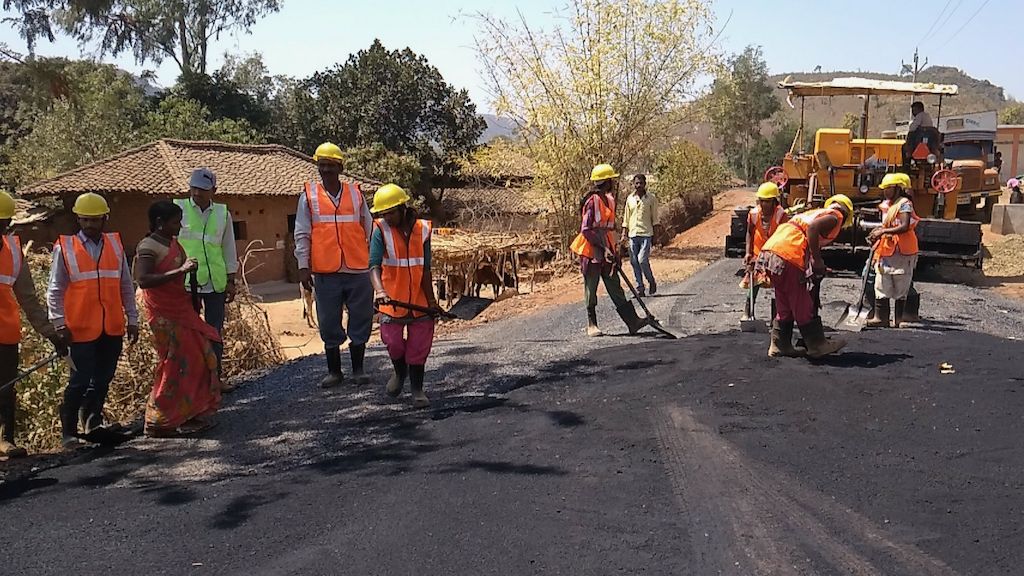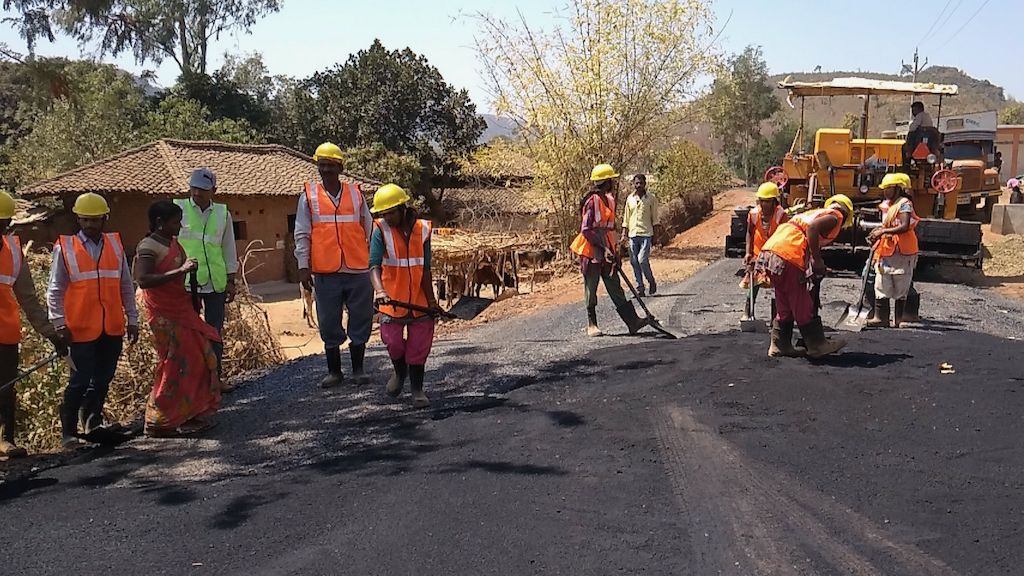
Addressing Challenges of Rural Infrastructure Development in Nigeria; Unlocking Success
Introduction
Rural infrastructure development is crucial for the socio-economic advancement of Nigeria. As the country continues to experience rapid urbanization, it becomes increasingly important to address the challenges of rural infrastructure development to ensure balanced growth across urban and rural areas. This article explores the multifaceted challenges faced in rural infrastructure development in Nigeria and offers insights and strategies for overcoming these obstacles to achieve sustainable and equitable development.
Understanding the Importance of Rural Infrastructure Development
1. Economic Growth and Development
– Overview:
Rural infrastructure, including roads, electricity, water supply, and educational facilities, is foundational for economic development. Efficient infrastructure supports agricultural productivity, enhances market access, and fosters local businesses.
– Impact:
Improved rural infrastructure can stimulate economic activities, create job opportunities, and elevate the standard of living for rural populations. This, in turn, contributes to national economic growth and reduces regional disparities.
2. Social Well-being and Quality of Life
– Overview:
Access to quality infrastructure significantly impacts social services such as healthcare, education, and clean water. It directly affects the quality of life and well-being of rural communities.
– Impact:
Enhancing rural infrastructure leads to better health outcomes, increased educational attainment, and overall improved living conditions, fostering social equity and inclusion.
3. Agricultural Productivity and Food Security
– Overview:
Efficient infrastructure is vital for the agricultural sector, which is the backbone of rural economies. Adequate transportation, irrigation, and storage facilities improve agricultural productivity and food security.
– Impact:
By investing in rural infrastructure, Nigeria can enhance agricultural output, reduce post-harvest losses, and ensure food security for its growing population.
Key Challenges in Rural Infrastructure Development
1. Funding and Financial Constraints
– Challenge:
Limited financial resources and inadequate funding mechanisms are major barriers to rural infrastructure development. Government budgets and investment are often concentrated in urban areas, leaving rural regions underfunded.
– Solution:
Explore diverse funding sources, including public-private partnerships, international aid, and community-based financing models. Implement cost-effective and innovative financing solutions to bridge the funding gap.
2. Geographic and Environmental Barriers
– Challenge:
Nigeria’s diverse geography and challenging environmental conditions, such as rough terrains and flood-prone areas, complicate infrastructure development in rural regions.
– Solution:
Conduct thorough site assessments to understand geographic and environmental conditions. Utilize appropriate engineering and construction techniques, such as modular and resilient infrastructure solutions, to address these challenges.
3. Inadequate Planning and Coordination
– Challenge:
Poor planning and lack of coordination among various stakeholders can lead to inefficient use of resources and suboptimal project outcomes.
– Solution:
Develop comprehensive and integrated rural infrastructure plans that align with local needs and priorities. Foster collaboration among government agencies, local communities, and private sector partners to ensure effective planning and execution.
4. Maintenance and Sustainability Issues
– Challenge:
Infrastructure projects often suffer from inadequate maintenance and lack of sustainability, leading to rapid deterioration and ineffective use of resources.
– Solution:
Implement robust maintenance plans and sustainability practices, including regular inspections, community involvement in upkeep, and the use of durable materials and technologies. Prioritize projects with long-term benefits and maintenance strategies.
5. Lack of Skilled Workforce
– Challenge:
The shortage of skilled labor and technical expertise in rural areas can impede the development and maintenance of infrastructure projects.
– Solution:
Invest in workforce development and training programs to build local skills and capacity. Collaborate with educational institutions and vocational training centers to develop a skilled workforce for rural infrastructure projects.
6. Regulatory and Bureaucratic Hurdles
– Challenge:
Complex regulatory processes and bureaucratic inefficiencies can delay infrastructure projects and increase costs.
– Solution:
Streamline regulatory processes and reduce bureaucratic red tape. Implement transparent and efficient procedures for project approvals and permits, and engage with local authorities to facilitate smoother operations.
Strategies for Overcoming Rural Infrastructure Development Challenges
1. Adopt Integrated Planning Approaches
– Overview:
Integrated planning approaches ensure that rural infrastructure projects are well-coordinated and aligned with local needs and development goals.
– Implementation:
Develop and implement integrated rural development plans that address infrastructure, economic, and social needs. Engage local communities in the planning process to ensure that projects meet their needs and priorities.
2. Leverage Technology and Innovation
– Overview:
Technology and innovation can enhance the efficiency and effectiveness of rural infrastructure development.
– Implementation:
Utilize advanced technologies such as GIS for planning, drones for surveying, and remote sensing for monitoring. Explore innovative construction techniques and materials that are cost-effective and suitable for rural environments.
3. Promote Public-Private Partnerships (PPPs)
– Overview:
Public-private partnerships (PPPs) can provide additional funding and expertise for rural infrastructure projects.
– Implementation:
Develop PPP models that align with project goals and local conditions. Encourage private sector investment in rural infrastructure and foster collaborative efforts between government, businesses, and communities.
4. Enhance Community Involvement and Ownership
– Overview:
Community involvement and ownership are crucial for the success and sustainability of rural infrastructure projects.
– Implementation:
Engage local communities in the planning, implementation, and maintenance of infrastructure projects. Foster community participation through consultations, workshops, and capacity-building initiatives.
5. Strengthen Institutional Capacity
– Overview:
Building institutional capacity is essential for effective infrastructure planning, execution, and management.
– Implementation:
Strengthen the capabilities of government agencies and local authorities responsible for rural infrastructure development. Provide training and resources to enhance their ability to plan, implement, and manage projects efficiently.
6. Focus on Sustainable Development Practices
– Overview:
Sustainable development practices ensure that rural infrastructure projects are environmentally friendly and economically viable in the long term.
– Implementation:
Incorporate sustainable design principles, such as energy efficiency and resource conservation, into infrastructure projects. Implement measures to minimize environmental impact and promote resilience to climate change.
Case Studies: Successful Rural Infrastructure Projects in Nigeria
1. The Rural Access and Mobility Project (RAMP)
– Overview:
The Rural Access and Mobility Project (RAMP) aimed to improve rural road networks and access to markets in Nigeria.
– Outcome:
The project successfully enhanced road infrastructure in rural areas, leading to improved market access and economic opportunities for local communities. RAMP demonstrated the benefits of targeted investment in rural infrastructure.
2. The Community-Based Agricultural and Rural Development Project (CBARDP)
– Overview:
The Community-Based Agricultural and Rural Development Project (CBARDP) focused on improving agricultural productivity and rural infrastructure.
– Outcome:
CBARDP successfully implemented infrastructure improvements, such as irrigation systems and storage facilities, leading to increased agricultural output and food security. The project highlighted the importance of integrating infrastructure development with agricultural initiatives.
Conclusion
Addressing the challenges of rural infrastructure development in Nigeria requires a multifaceted approach that encompasses funding, planning, technology, and community engagement. By understanding and tackling key challenges such as financial constraints, geographic barriers, and regulatory hurdles, stakeholders can achieve sustainable and impactful rural infrastructure development.
Implementing strategies such as integrated planning, leveraging technology, promoting public-private partnerships, and focusing on sustainability will contribute to the successful development of rural infrastructure. As Nigeria continues to strive for balanced growth and development, prioritizing rural infrastructure is essential for enhancing economic opportunities, social well-being, and quality of life across the country.
By embracing these strategies and learning from successful case studies, stakeholders can effectively address the challenges of rural infrastructure development and drive progress towards a more equitable and prosperous Nigeria.
Contact Us
For premier Understanding Rural Infrastructure development in Nigeria, contact Chaman Law Firm today. Our offices are conveniently located in Lagos, FCT Abuja, Ogun State, and the UK. We are readily available to assist you with your legal needs. Whether you require consultation, representation, or ongoing legal support, Chaman Law Firm is your trusted partner in navigating Construction law in Nigeria.
Call us at 08065553671 or email us at info@chamanlawfirm.com to schedule a consultation.
- Construction Law
- Real Estate Law
- Building and Safety Codes
- Environmental Law
- Insurance Law
- Health and Safety Law
- Contractor and Subcontractor Law
Chaman Law Firm: Your Trusted Legal Partner in Construction Law
By choosing Chaman Law Firm, you are selecting a team of dedicated professionals committed to providing exceptional legal services tailored to your unique needs. Let us be your advocate and guide in the complex world of Construction law, ensuring your interests are protected and your goals are achieved.


